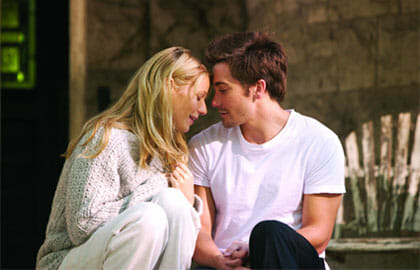Proof

Screen adaptation of London play reveals the equally complicated worlds of high math and relationships
Madness and genius have long enjoyed a certain uncomfortable kinship. Philosophers and psychiatrists continue to ponder the awkward relationship between profound creative thought and mental instability, but the correlation (and its implication) never gets any clearer. Still, it all makes a strange kind of sense: the most affecting breakthroughs are typically based on the kinds of fragile, unthinkable truths the rest of us instinctually shy away from. Maybe in order to think outside the box, you need to live outside it, too.
-

-

-

-

-

-

-

-

-

-

-

-

-

-

-

-

-

-

-

-

-

-

-

-

-

-

-

-

-

-

-

-

-

-

-

-

-

-

-

-








































